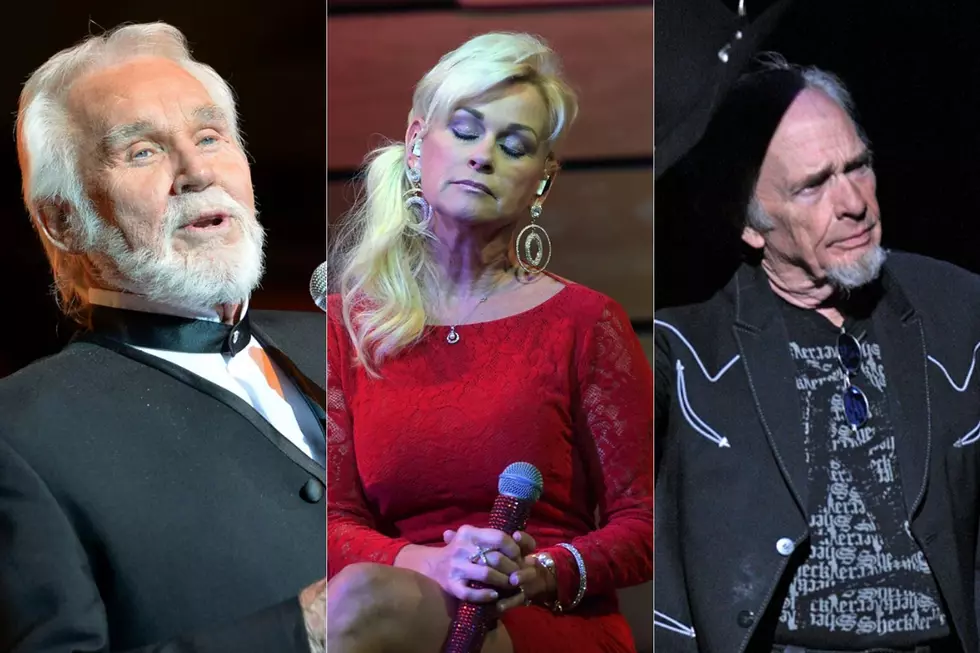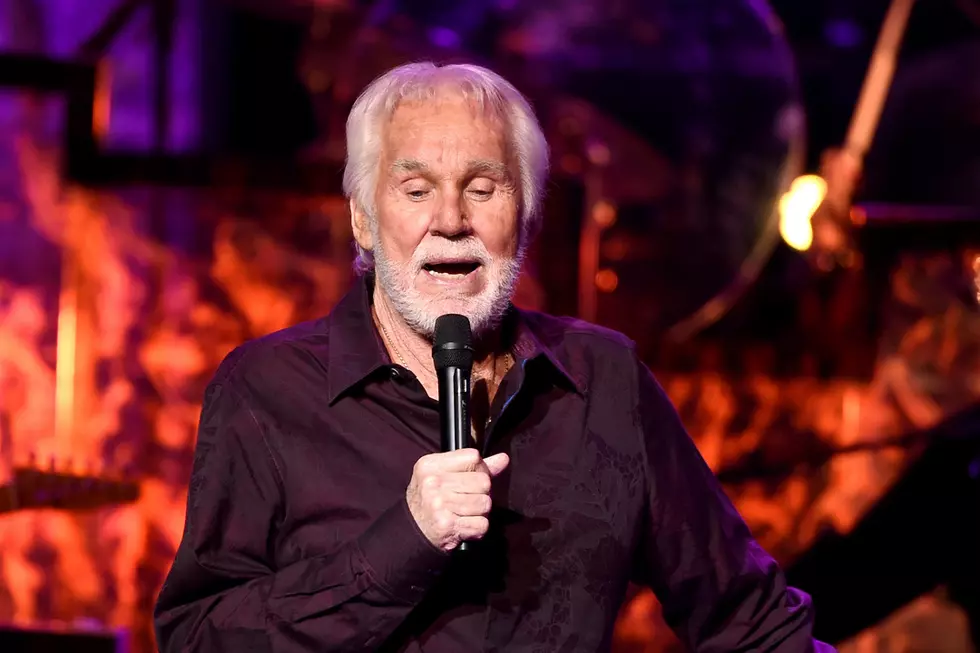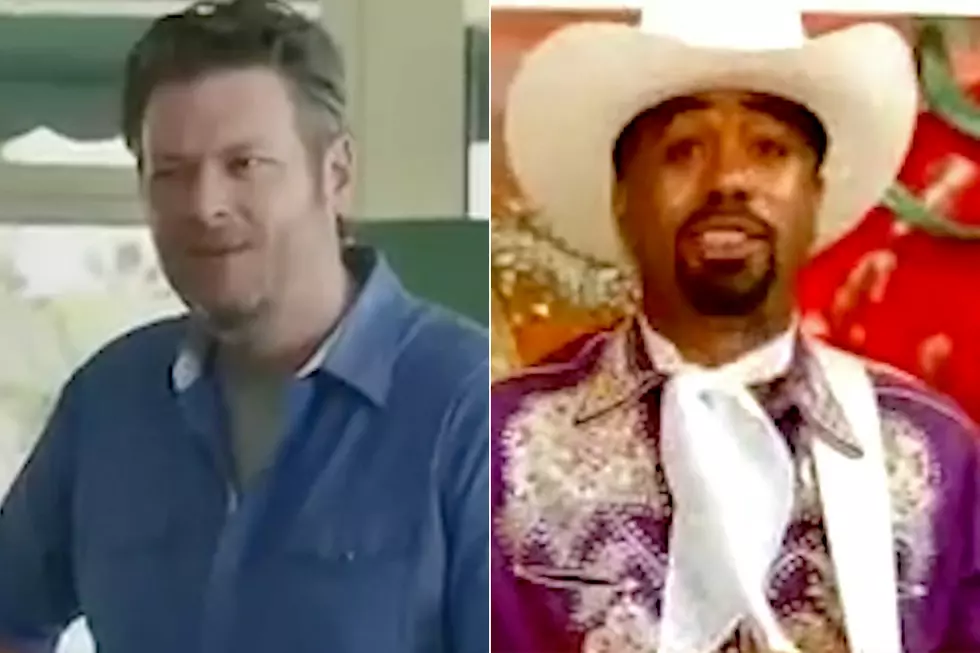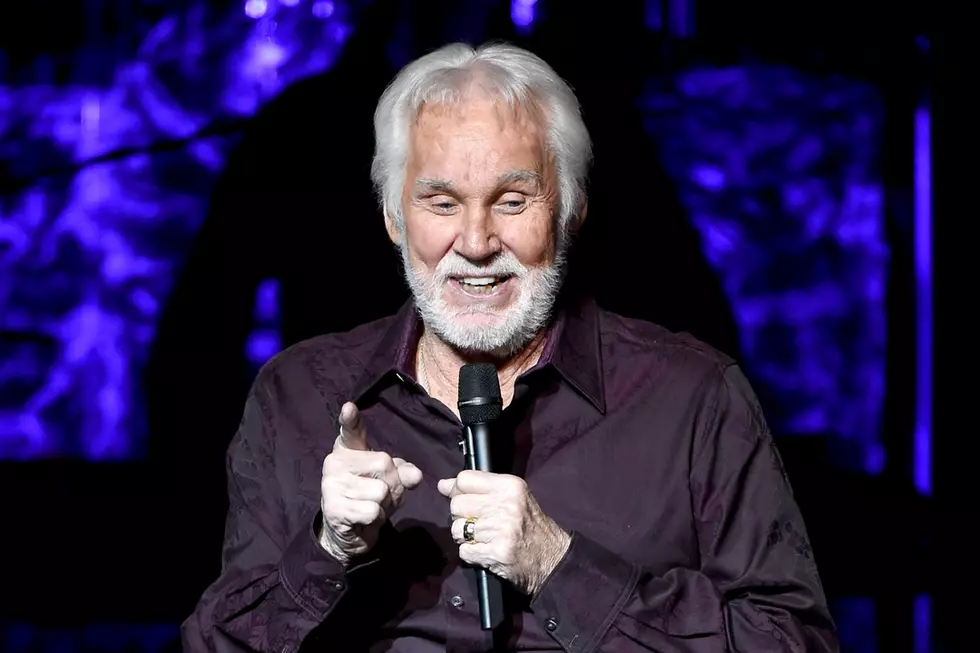
Kenny Rogers Interview: Legend Admits He’s Careful Not to Get Trapped in Nostalgia
It's just coincidence that Kenny Rogers' new duet with Dolly Parton comes 30 years after the timeless 'Islands in the Stream' was recorded. In fact, Rogers says, the 30th anniversary of the song's peak on both pop and country charts comes on the day he'll be inducted in the Country Music Hall of Fame. Come on -- just coincidence?
"Totally coincidental," Rogers tells Taste of Country. "In fact, neither one of us realized that it was an anniversary of it, that it had been that long."
The singer is releasing 'You Can't Make Old Friends' on his new 'You Can't Make Old Friends' album on Oct. 8. It's the project's signature song, but the remaining 10 tracks are far more than filler. One track called 'You Had to Be There' is Rogers at his storytelling best.
It's clear by following what Rogers has been up to in recent years that he's still hungry for relevancy in the modern country music landscape. He's caught off guard when reminded the 30th anniversary of the Real Love Tour with Parton is also coming. At age 74, he began playing internationally-known festivals alongside indie bands like the Arctic Monkeys and Wilco, plus rapper R. Kelly. Country newcomer Eric Paslay was influential on at least one song found on Rogers' new album.
One of country's first crossover acts, Rogers has his eyes forward, but he's comfortable looking back. "When you look at 'You Can't Make Old Friends,'" he says on the day he's scheduled to join Zac Brown Band at the Southern Ground Festival, "it's not really about the success of that song, it's about the fact that Dolly and I had a chance to really document our relationship. Because when we were doing it, I think both of us realized it's kind of a poignantly sad song. Poignant in the sense that it really reminds us what great friends we are and have been to each other, but sad in the sense that one of us is gonna be gone someday, you know? And life won't be the same."
Both artists are full of so much youthful exuberance, that day is difficult for anyone to envision.
ToC: Do you remember the first time you met Dolly Parton?
Kenny Rogers: Yeah, we were recording 'Islands in the Stream.' Well, that's not true, I met her before that. She had a television show and she had the big butterfly on the wall and I did her show -- it must have been a First Edition song -- and I did it and we met and we said "Hello" and that was it, and I hadn't seen her again for years.
And then when we go to L.A. and I'm doing 'Islands in the Stream' and I'd sung that song for four days and I finally just told Barry Gibb, I said, "I don't even like this song anymore." And he said "What we need is Dolly Parton." And my manager said, "I just saw her downstairs." So I said, "Go get her and bring her back."
So he brought her back in and once she came in that song was never the same. She lit it up and we became good friends from that point on.
You've recently played the Southern Ground Festival, Bonnaroo, Glastonbury and other cool festivals. What do you enjoy about the festival setting?
First of all, I didn't before I did them. I didn't wanna do them. But Ken Levitan is my new manager and I've always said he never minded experimenting with my career. I told him, I said, "Ken, you know you're putting me so outside of my comfort zone." And he said, "I'm going to do that as long as I'm working with you. The only way you grow is to get out of your comfort zone."
And I must say, I went to Glastonbury not knowing what to expect and was totally shocked. There were 183,000 people who knew every song. I was amazed at these young kids from England, probably the average age was 20-30, and they knew it. More importantly, the day before that I was in Morroco, and we had 130,000 people who I didn't even know spoke English. And they knew all of these songs.
Does playing for that kind of crowd and the work you've done with younger artists like Eric Paslay and Kellie Pickler help you make sure the music you release now sounds contemporary and hip?
Well, when I heard the Eric Paslay song ('Turn This World Around'), I knew I wanted to do it. I wasn't sure I could do it. One of the beauties of this relationship to John Esposito, who is the president of Warner Brothers, he said, "Don't worry about radio. You let me worry about radio. You do the album you want to do." So I heard that song and I love the message of it.
I started doing it, and we had the tracks cut and it just didn't sound right, so I said we need Eric over here. And they said, "I know Eric and he's probably driving around looking for something to do in Nashville." So they called him and he said "I'm just driving around looking for something to do in Nashville."
So about 30 minutes later he came in and was a great help. He added all the real basics to the song that make it what it is and it's a wonderful piece of music and I'm thrilled that it's on the album.
You've said that perhaps one of the reasons it took so long for you gain induction into the Country Music Hall of Fame was because you crossed over and brought a heavy pop influence. Was it easier to cross over in the late '70s than it is today?
You know, someone asked me why I felt a need to do that -- why didn't I just do country music? I said it was because I have a career at stake. This is my career. I spoke yesterday … and I told them then, I said, "I know I'm gonna get a lot of flack about this, but sooner or later country music has to decide whether it's an art form or a business. If it's a business, welcome anybody that sells records. If it's an art form, get rid of everybody that doesn't sound like Hank Williams." If you look back at history, the only music that has never progressed at all -- is exactly like it was in the '20s -- is Dixieland. Because nobody ever experimented with it.
I think that what happens is historically, music is very cyclical. It will get so far out, because country music is after all what country people will buy. They quit buying it, it's no longer country. And right now artists like Kellie Pickler and all these people that are bringing all of these young kids into country music, I think it's very healthy for the art form. Somebody is going to come along with a Randy Travis kind of voice and do a simple song and they're going to love it and it's going to start all over again.
You're right, it seems to be a seven year cycle.
Yeah. I've always said that an artist has seven years. The first year they know who you are, but you're not nominated. The second year they know who you are, but you're nominated for a few things, but you don't win. The third year you're nominated for a lot of things and you win some of them. The fourth year you're nominated for everything and you get everything. The fifth year you're nominated for everything and you get some of them … so that's just cyclical. I promise you, you can go back and look at that.
With that in mind, how difficult is it to accept when you get to that eighth year and you're on the downturn?
It's never an easy pill to swallow, but if you're a realist and you know it's coming, then you don't take it personally. Cause when you're in that fifth year you're thinking, "Man I have found something nobody else has, I'm going to be around forever." But the thing I've learned is that this music … there's a glide path. The longer it takes you to reach the top, the longer you're glide path is coming down. If you go straight up, chances are you'll come straight down. That's a tough thing to handle.
All anybody wants -- none of us really wanna stay on top, honest to God. I don't. But I just don't like not being relevant. And that's what I'm hoping this album will do, at least give me credibility with this group of people.
Have you ever forgotten the words to 'The Gambler' on stage?
Oh God, yes, are you kidding? 'The Gambler' is not as bad as others. But I sometimes change sexes in the middle of a song. I'll be singing, "He said this" and then it's, "She said that."
I really consider myself more of an entertainer than a singer, and I think that sometimes I'll be singing a song thinking about four songs ahead, what I'm gonna do. And all of a sudden I kind of remember the story, but I don't remember the lyric. I don't do that very often, but boy when I do …
More From Taste of Country

![Kenny Rogers Through the Years, With Family and Famous Friends [Pictures]](http://townsquare.media/site/204/files/2020/03/kenny-with-michael-jackson.jpg?w=980&q=75)

![See Inside the 15 Biggest Country Stars’ Houses [Pictures]](http://townsquare.media/site/204/files/2019/12/attachment-country-singers-biggest-houses.jpg?w=980&q=75)

![See Inside the 11 Most Jaw-Dropping Country Stars’ Mansions [Pictures]](http://townsquare.media/site/204/files/2018/08/attachment-country-stars-spectacular-houses-pictures.jpg?w=980&q=75)

![All Grown Up: See Country Stars’ Kids, Then + Now [Pictures]](http://townsquare.media/site/204/files/2024/02/attachment-reba-shelby.jpg?w=980&q=75)

